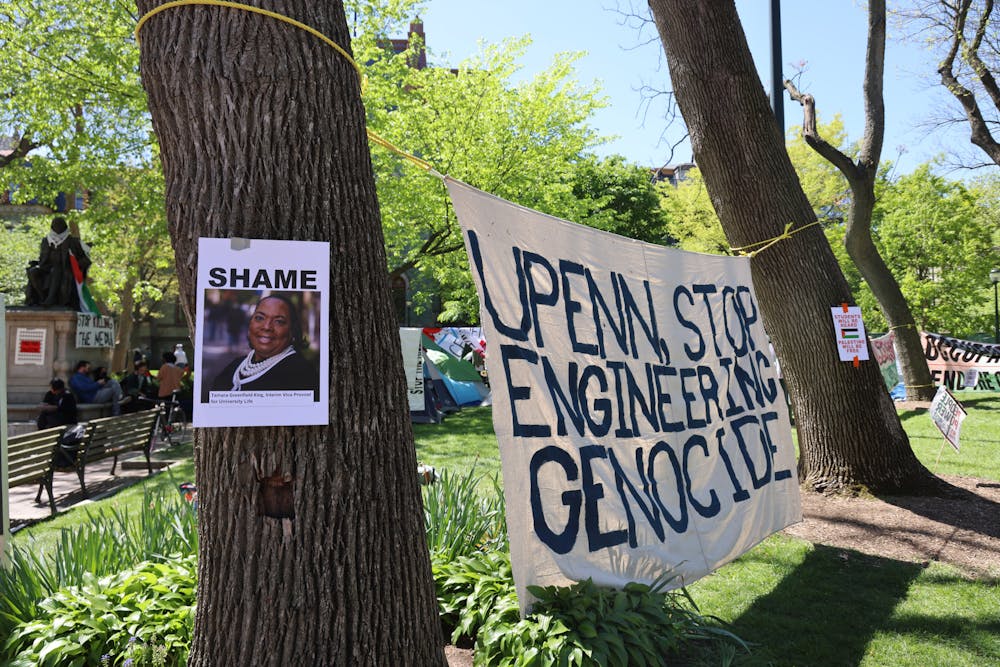Young people across the country are demanding that their universities disclose and divest.
At Penn, student protesters want to see the University be transparent about how the endowment is invested. They want to distance our institution from the profits that some corporations are extracting from a horrendous war.
Student demands should not be put aside.
Such demands build not only on previous divestment campaigns but on a history of struggles to make ethical choices — as individuals, as communities, as institutions — about what our resources support.
It is possible to imagine a world in which the endowments of educational and medical institutions are understood to be different from other pots of money, and are invested only where there is broad agreement that no public harm is being caused.
We don’t have to look far for models of past efforts to find an ethical financial path.
Philadelphia supplies examples of the struggle to make ethical choices with money: Many Quakers refused to support war. Eventually, this led to their condemnation of slavery. Philadelphia was the epicenter of an ethical community, where abolitionists committed to “free labor produce” chose not to purchase slave-produced sugar because it meant providing financial support to Caribbean enslavers. Abolitionists who were vilified in their own times seem visionary in ours. Angelina Grimké, the daughter of a South Carolina enslaver turned Quaker abolitionist, scandalized Philadelphia in 1838 when she used her own wedding as a way to distance herself from sugar, cotton, and coffee: products produced by a brutal slave system.
For an enslaved person, choosing the dangerous path of “self-theft” — a choice of freedom — was illegal. Thousands of enslaved people put their bodies at risk to cross into Pennsylvania from Maryland, Delaware, and Virginia. Labeled fugitives then, we see them as heroes now.
Times change.
The conversations we need to have now require transparency about the endowment. They may also require discussion about the way investments in private equity funds make such transparency difficult.
We support students’ insistence that Penn provides an honest accounting of how the endowment is invested. We want to hear what students have to say about divestment.
Ann Farnsworth-Alvear
Professor of History
Affiliated Faculty, Latin American and Latinx Studies
University of Pennsylvania
Kathleen M. Brown
David Boies Professor of History
Lead Faculty Historian, Penn & Slavery Project
Core Faculty, Center for Research in Feminist, Queer, and Transgender Studies
Roquinaldo Ferreira
Henry Charles Lea Professor of History
William Sturkey
Professor of History









